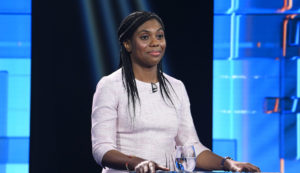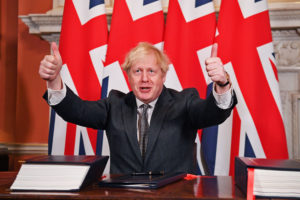Of the 15 British Prime Ministers since the end of the Second World War, only two — Attlee and Heath — both initially entered and finally exited Downing Street at a general election. The coronation of Sunak or Truss will make that just two out of 16.
So there is nothing especially unusual about the current leadership election — except, of course, that the Conservative Party is choosing a new leader less than three years after the last one won a general election with close to a landslide. The only other real difference between the current contest and most of the others since 1945 is the involvement of the Conservative Party’s grassroots. The 2019 contest from which Boris Johnson emerged victorious was the first time that any party’s membership had directly chosen a Prime Minister.
This will be the second, and not everyone approves, with calls to restrict the vote to MPs in the future coming from both within and without the party. For some, this is about principle (MPs are accountable to the public, activists aren’t); for others it’s pragmatic (it’ll be quicker, or produce what they see as the right outcome).
Things are not helped by the demographics of the Conservative grassroots — average age around 57, mostly middle-class, disproportionately white and southern — which last time triggered complaints about how the Prime Minister was being chosen by an unaccountable, elderly, Right-wing cabal. (Given the demographics of the Labour Party, when, or if, they are next in power long enough to change leaders while in Downing Street, then their Prime Minister will be chosen by an unaccountable, elderly, Left-wing cabal, but people seem less exercised by this for some reason.)
Perhaps the most surprising thing about this debate is that it has taken so long to become an issue. Labour widened the franchise for its leadership elections to include party members in the early Eighties; the Conservatives did the same in the late Nineties. Yet both changes took place at the beginning of long periods of opposition; that, and two unopposed contests in 2007 (Labour) and 2016 (Conservative), meant that it’s taken almost 40 years for this issue to come to a head.
It was Willie Whitelaw — who stood as party leader, unsuccessfully, in 1975 — who once said that whatever system you have, someone was bound to think it was the wrong one; listening to complaints this week you have to feel he had a point. One of the few academic studies of British leadership contests — albeit one that is now almost 30-years-old — concluded that the rules chosen didn’t actually make much difference to the outcome. For all that parties obsessed about procedures, it was likely that the same people would have been elected in most cases (although the possible exceptions to this claim — including both Thatcher and Corbyn — strike me as important enough to treat that conclusion with some caution).
A central part of the criticism of grassroots involvement is that party activists are said to be more extreme than their MPs. We’re told our representatives are wise and moderate, thinking sagely about the electoral consequences of their actions; activists, on the other hand, are nutjobs, thinking only about ideological purity. If you let activists vote, the argument goes, parties get lumbered with extremist leaders with little appeal to their voter base. But again, one of the few academic studies to actually test this (and here I declare an interest as its co-author) found it wasn’t true. Conservative MPs, for example, are to the Right of their grassroots on economic matters — and the grassroots are closer to the Conservative voters on social matters.
And anyway, the Conservative rules ensure that only two candidates go through to the members’ vote. If one of those is so unsuitable that choosing them would be a disaster, then it’s not the fault of the grassroots. You can’t blame party members that the choice now before them is between someone who always sounds like an over-enthusiastic CBeebies presenter and someone who resembles a malfunctioning animatronic.
Nor do I understand the argument that this contest has been especially dirty, likely to damage the Conservative brand. I’ve lost track of the number of articles about how vicious it has been, a Tory civil war. It all looks relatively civilised to me. I’ve certainly been in much nastier departmental meetings. In 1995, the Redwood campaign put out a leaflet saying that Conservative MPs needed to vote for him “to save your seat, your party, and your country”. Compared to that, this contest is child’s play.
Of course, you can’t blame the candidates in the lead for pulling out of the final TV debates – why risk it? And you can’t blame the opposition for pretending the contest is nasty (unlike Labour leadership contests, of course, which are always a love-in). Ditto journalists, who need to spice up copy a bit (and who are also always lovely to one another; never known for holding grudges). But spare me the Why Won’t Anyone Think About The Conservative Brand stuff. Have you seen the polling on the Conservative brand? The latest Ipsos Mori poll found just 21% of voters thought the Conservatives were “fit to govern” — their worst score since 2011. A bit of robust debate about how to improve things won’t exactly make things worse.
Besides, if the fear is that this will harm the party, the one study I’m aware of found that leadership changes actually tend to increase party popularity. The reasons are pretty obvious: they usually occur when the incumbent is a busted flush, with ratings going south. (He is, they are.) Again, it’s not a universal truth, but it’d be surprising if there wasn’t an electoral honeymoon of some sorts after the new leader comes in.
If polling of party members is any indication — and it almost always is — that person will be Liz Truss. If she is a disaster, the MPs who put her in the top two should carry the can. But if she’s a triumph — and after all, almost everyone assumed Thatcher would be an electoral disaster — then they can share in the glory of a system that worked.
Disclaimer
Some of the posts we share are controversial and we do not necessarily agree with them in the whole extend. Sometimes we agree with the content or part of it but we do not agree with the narration or language. Nevertheless we find them somehow interesting, valuable and/or informative or we share them, because we strongly believe in freedom of speech, free press and journalism. We strongly encourage you to have a critical approach to all the content, do your own research and analysis to build your own opinion.
We would be glad to have your feedback.
Source: UnHerd Read the original article here: https://unherd.com/



